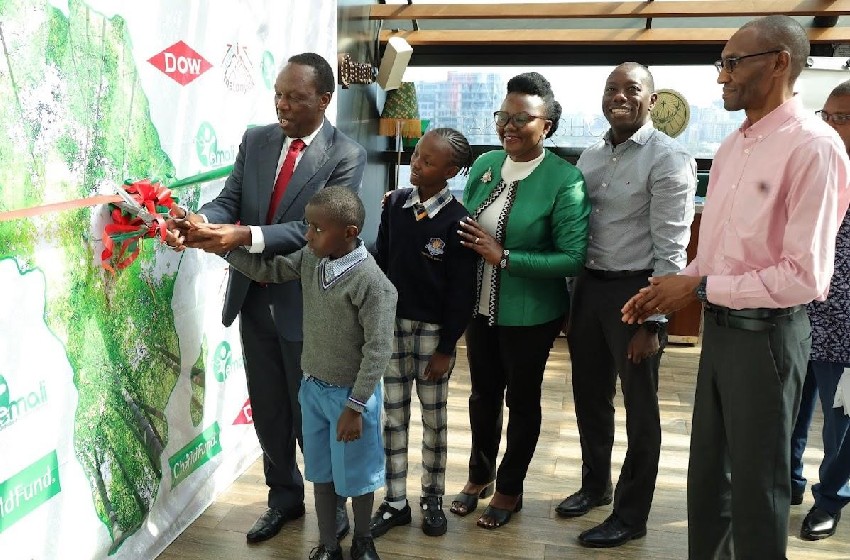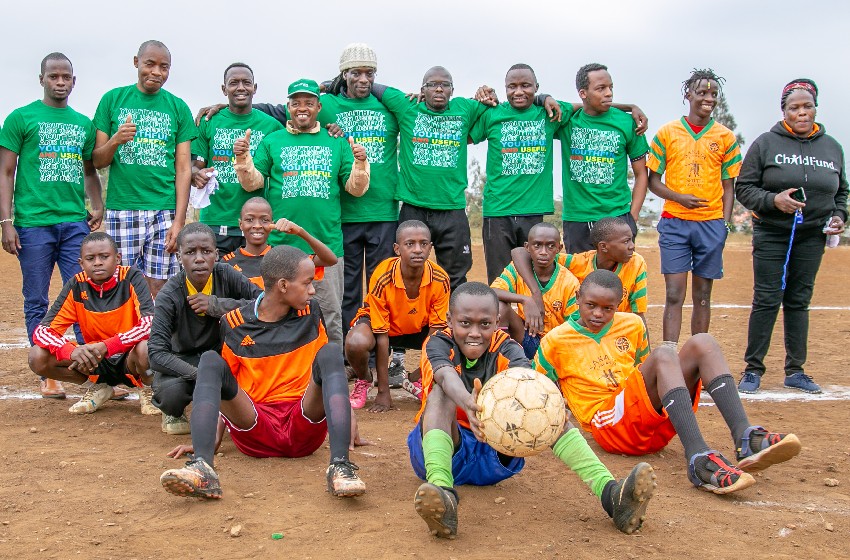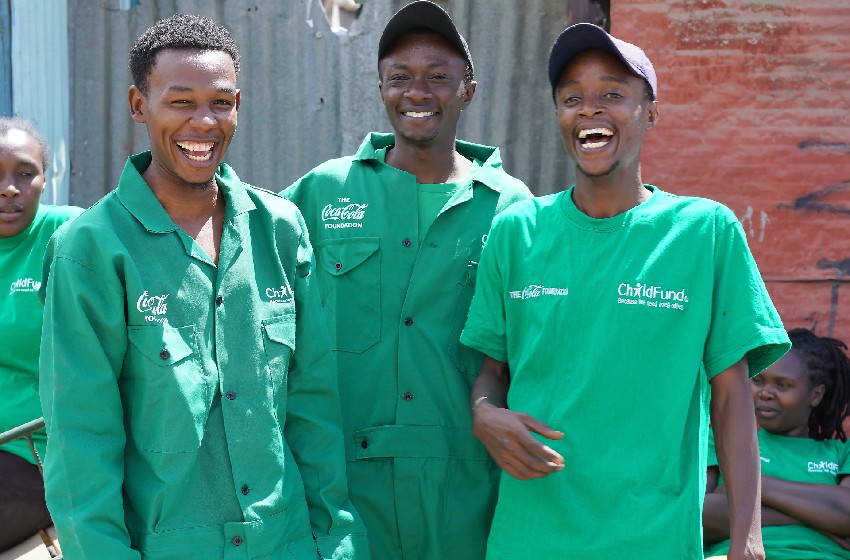
In January 2024, ChildFund and Dow launched the Regreening Africa Project to counter the impacts of climate change and improve...
Kenya is a youthful country. The 2019 national census indicates that 75% of the 47.6 million population is under the age of 35 – 29% (13,777,600) of this population constitutes youth aged 18-34 years. The report also records that over 70% of the unemployed comprise youth. Predictions by the National Council for Population and Development show that the population of youth in Kenya is likely to increase to 22.3 million by 2050. This means that there will be more young people entering the job market, and considering the existing limited employment opportunities a surge in youth unemployment is expected.
To reach their potential, young people need decent employment, financial inclusion, and opportunities for agency and participation. ChildFund’s programs for youth focus on work and entrepreneurial skills, employability, and work readiness, climate action, peace-building and advocacy.
Facts and figures from 2023 data.
Our youth programs are designed to promote improved economic, physical, and social well-being, laying the foundation for youth to become the catalysts for change in their family, community, and country. To these ends, our efforts focus on:
Climate change poses significant challenges for Kenya, particularly in terms of food security, water scarcity, and rural livelihoods. The country’s youth are increasingly recognized as key players in climate adaptation and mitigation efforts.
One of our flagship youth-led climate action projects is Regreening Africa in Makueni, Kajiado and Nairobi counties. We are engaging over 600 youth and 300 women in tree planting, agroforestry, and environmental conservation activities aimed at restoring degraded landscapes and creating sustainable livelihoods.
Conflict and insecurity in regions like Marsabit have long impacted communities, leading to a cycle of violence, displacement, and poverty. Young people, often at the forefront of these conflicts, can also play a pivotal role in peacebuilding efforts. Involving youth in conflict resolution fosters a culture of peace and prevents future violence.
For example, in Marsabit, ChildFund has mobilized youth to participate in peacebuilding forums, where they mediate local conflicts, promote dialogue, and advocate for peaceful coexistence across tribal and ethnic lines.
ChildFund’s livelihood programs for youth provide access to training, resources, financial and technical support, to equip youth with skills necessary for sustainable livelihoods.
For example, through a Coca-Cola-funded waste management project in Nairobi’s Mukuru Urban Informal Settlements, ChildFund equipped over 400 women and youth aged between 18 and 35 years with entrepreneurial skills, personal protective gear and waste management tools and equipment. This project resulted in a 25% increase in youth engagement in waste management value chain businesses and a rise in income levels by 60%. The average daily income rose from 90 Kenyan Shillings ($0.78) to 160 Kenyan Shillings ($1.5). Additionally, waste collection increased from 2 to 4 tonnes per month.
In today’s dynamic job market, youth need both technical and soft skills to secure employment and build sustainable careers. By partnering with the private sector and providing vocational and entrepreneurial training, we help young people gain practical experience and insights into market demands.
For example, through initiatives like ChildFund’s Fundi-Fiti project, supported by Dow Chemical in Kiambu County, we are working with Muguga Technical and Vocational Education and Training (TVET) Centre to deliver competitive, sustainable, and modern construction education to close the youth skills gap in the infrastructure industry, which is 42% unskilled. Over 800 youth have successfully graduated from this program over the past 3 years.
Youth involvement in advocacy and policymaking is crucial for shaping policies that reflect the needs of younger generations. By participating in advocacy efforts, youth gain personal, social, and political skills that empower them to influence county, national, and global policies.
Most recently, we supported 40 youths to participate in the inaugural Africa Children’s Summit and COP-28, where they engaged in high-level discussions with government leaders and other decision makers on climate action as they advocated for policies that address their needs.
In the face of the climate crisis in Kenya, urgent action is needed, particularly from the youth. Recognizing this, ChildFund has partnered with LEAP Africa, Dow Chemical, Ustadi Foundation, Nairobi City County, and other stakeholders to implement youth-led climate action projects. One notable initiative is the Youth Day of Service (YDoS), a month-long campaign celebrated alongside the UN International Youth Day in August. This initiative empowers young people to take the lead in creating impactful solutions to address climate challenges in their communities.Watch this video to learn more about this project.

Promoting Youth-Led Climate Action
ChildFund is engaging across Kenya in climate action initiatives, empowering them to lead community-based projects that promote environmental sustainability and drive climate adaptation efforts.

In January 2024, ChildFund and Dow launched the Regreening Africa Project to counter the impacts of climate change and improve...

Kenya, like many countries worldwide, is experiencing the severe impacts of climate change. Rising temperatures, unpredictable rainfall patterns, and an...

With a rapidly growing population of 4.4 million, Kenya’s capital city of Nairobi and its surrounding areas are struggling to...
You can see how this popup was set up in our step-by-step guide: https://wppopupmaker.com/guides/auto-opening-announcement-popups/